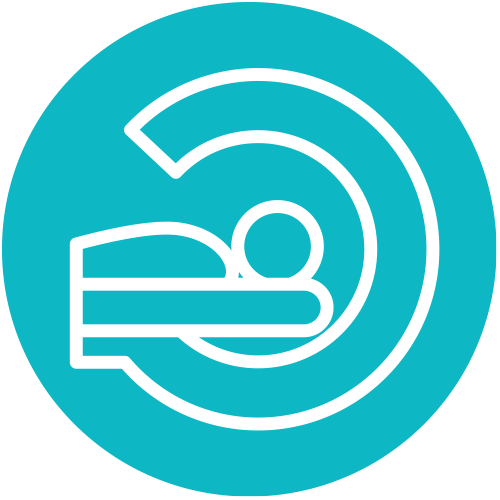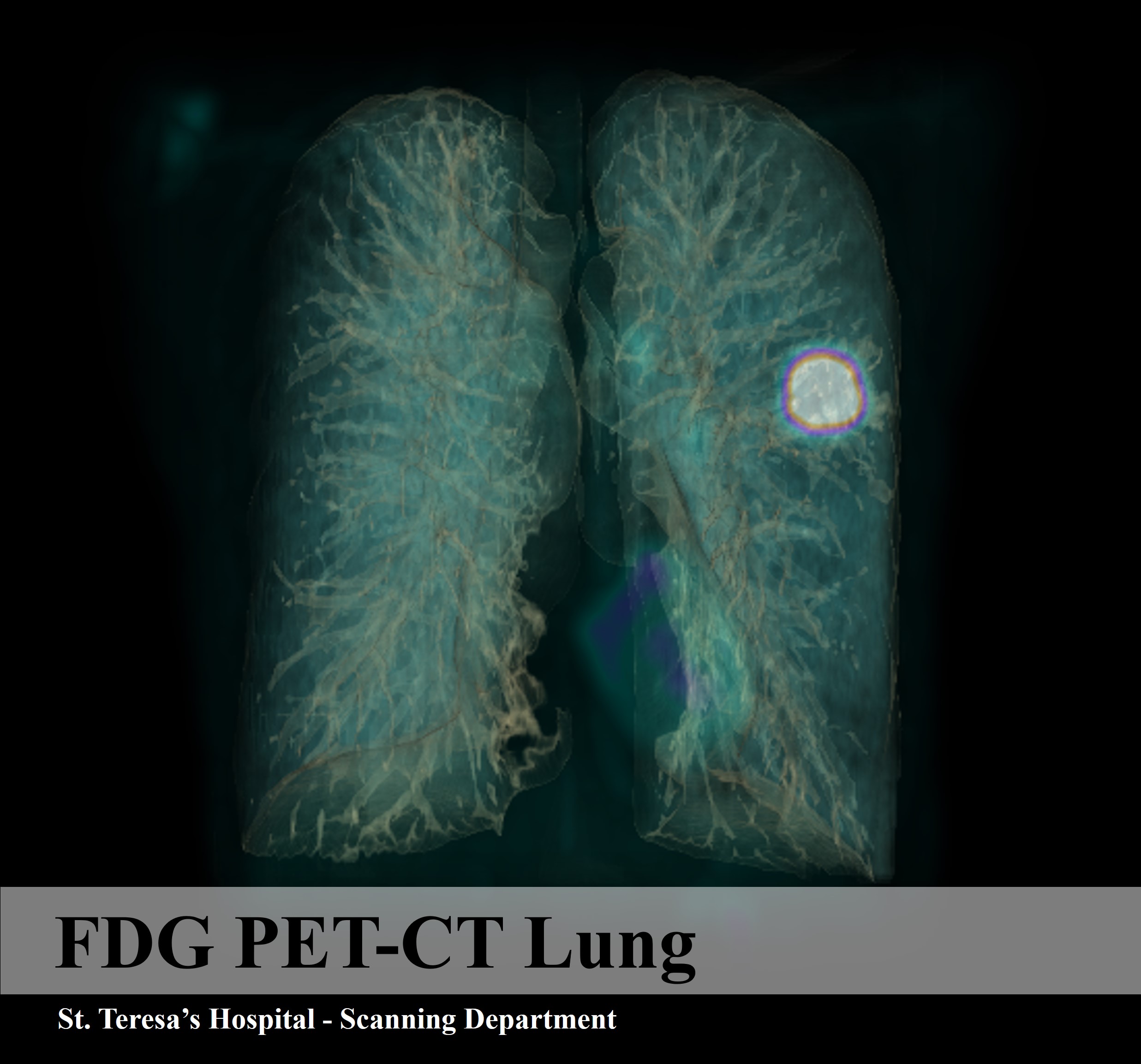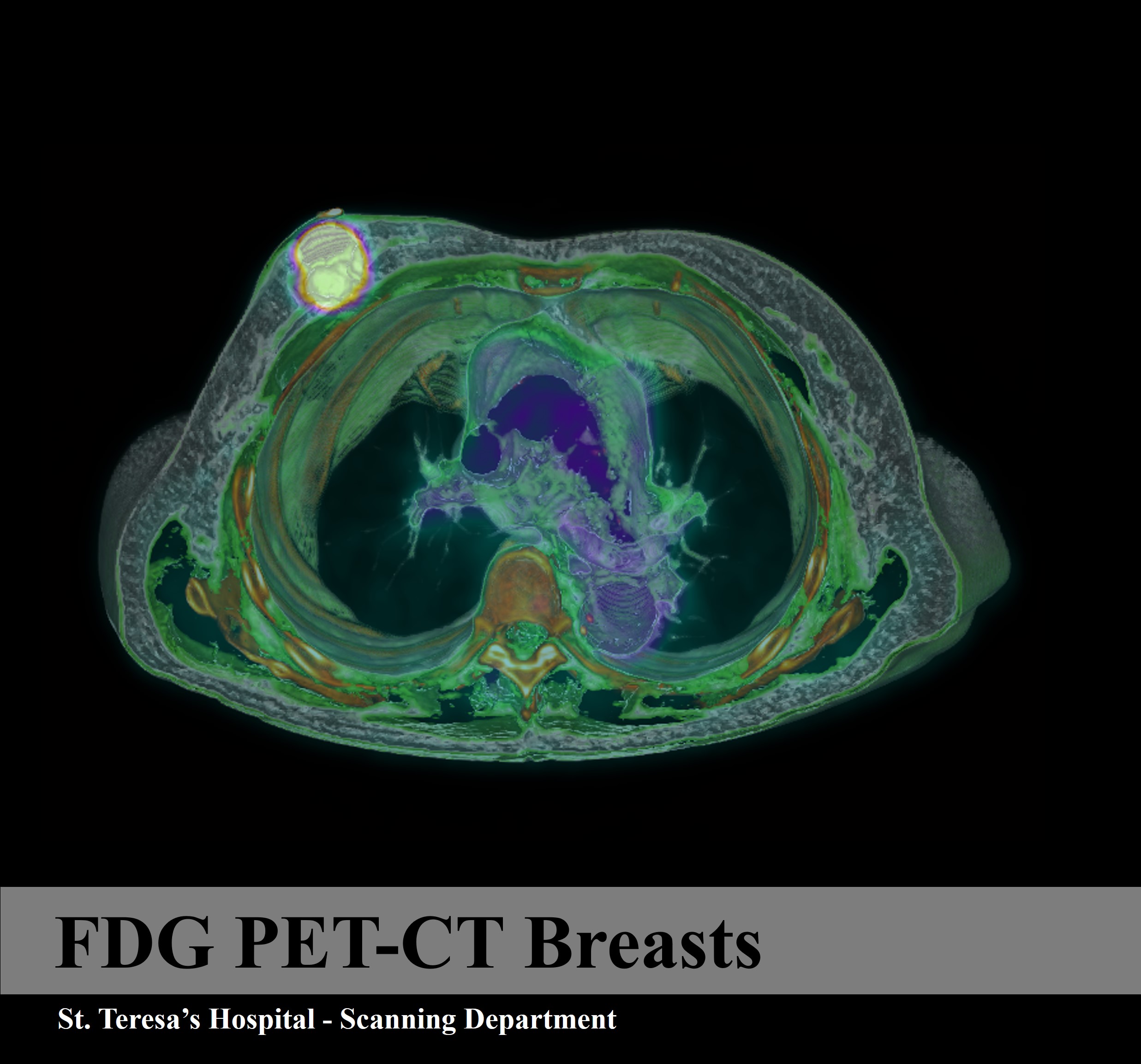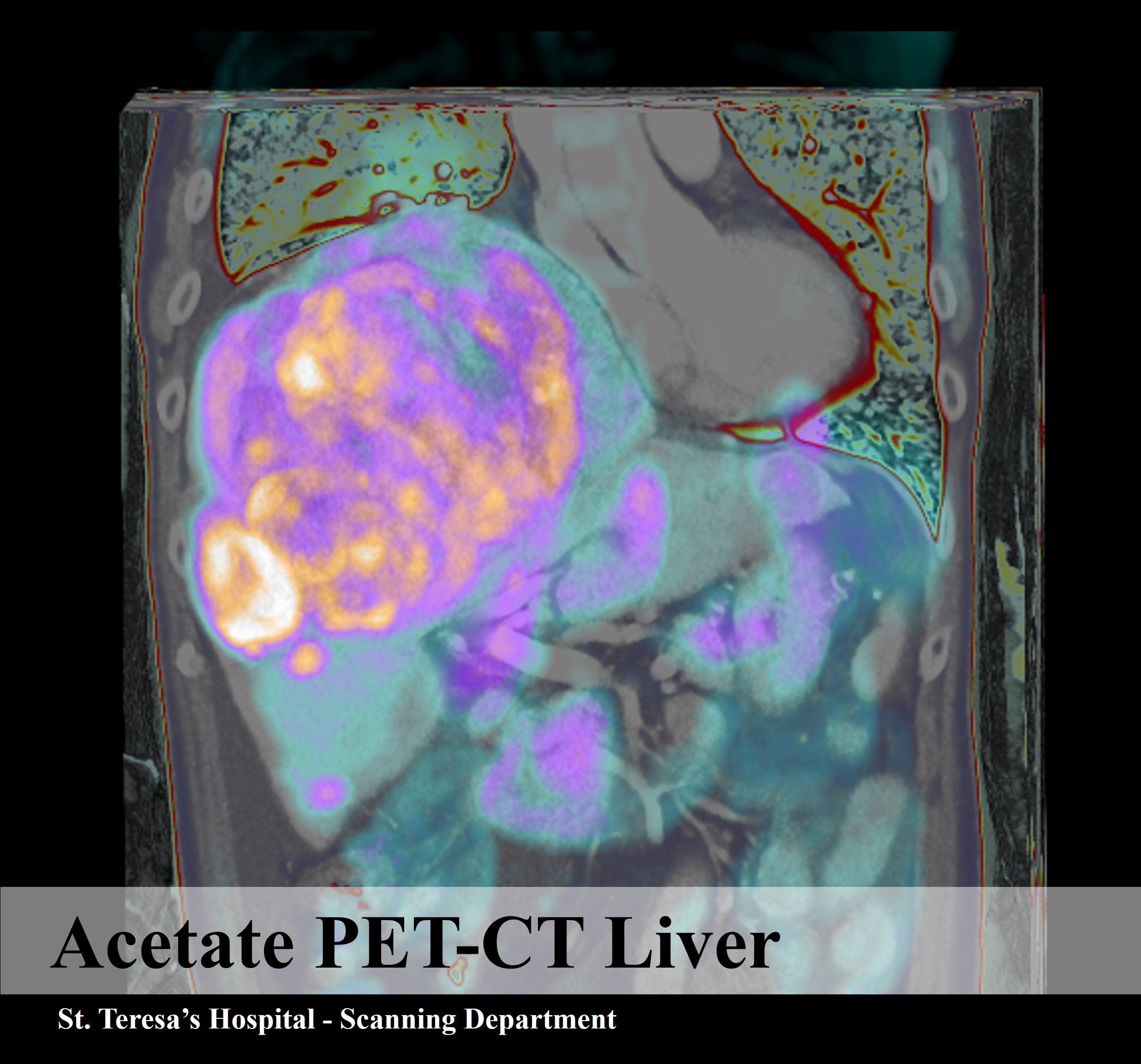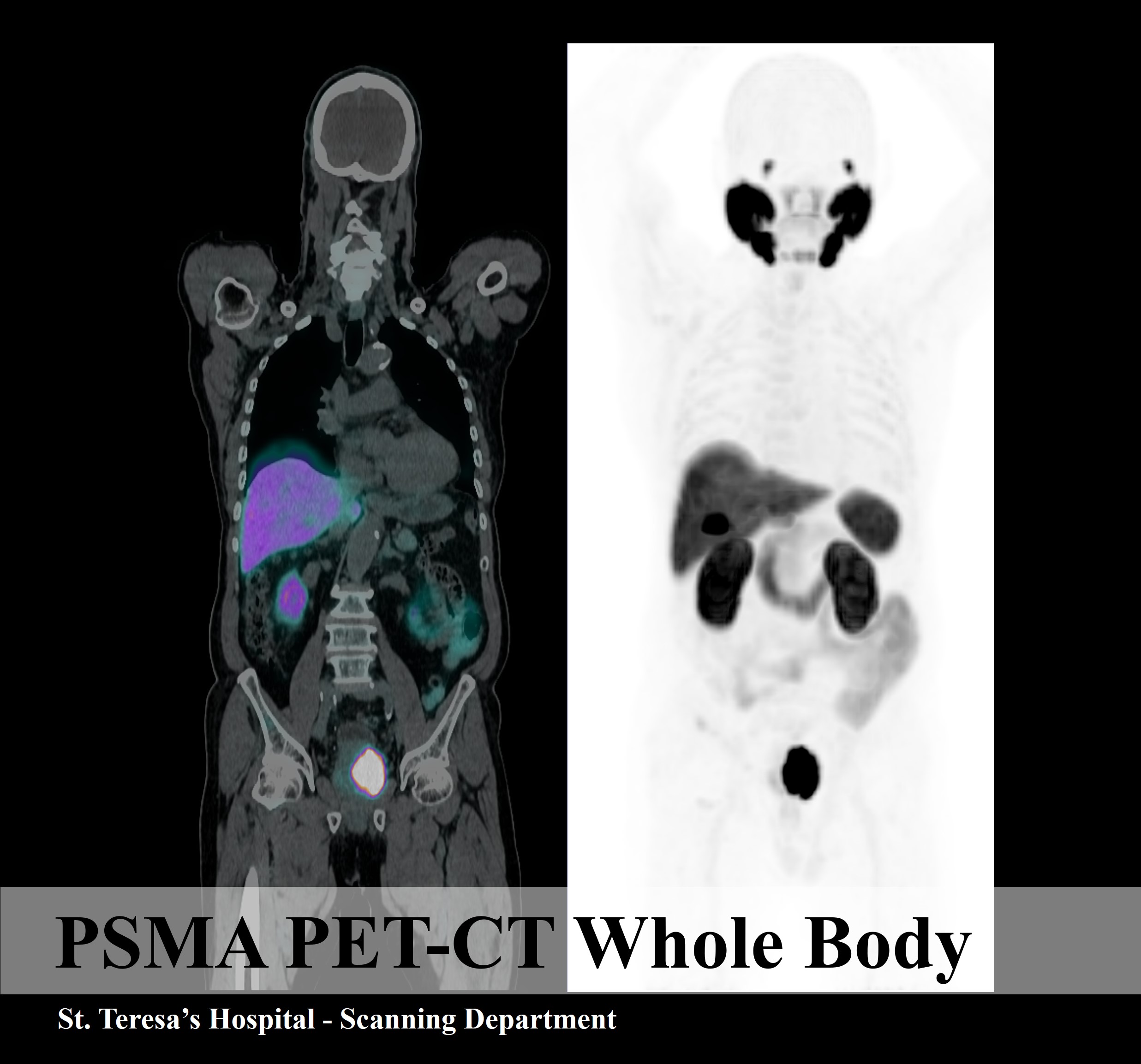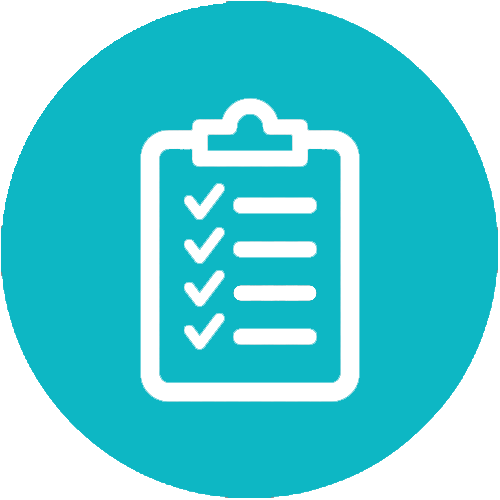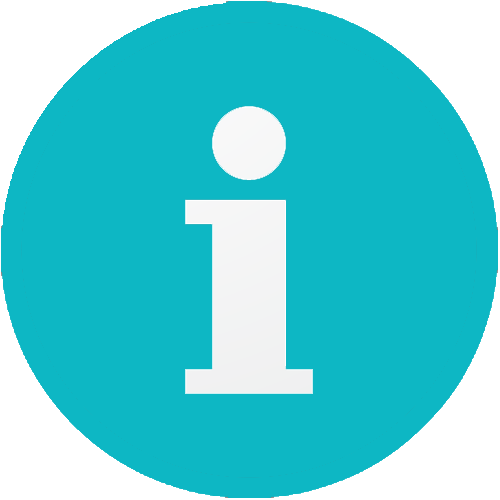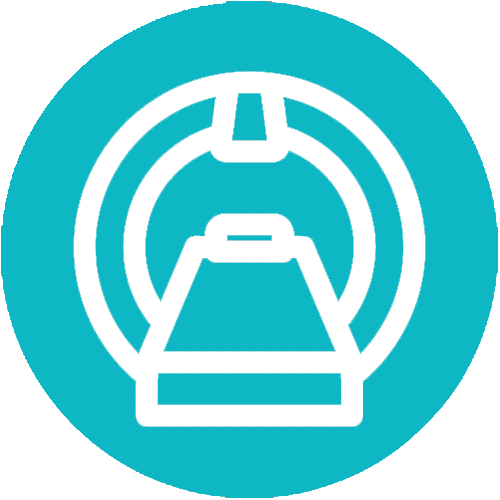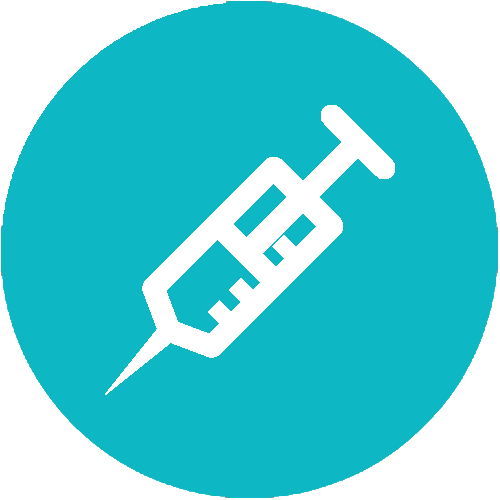PET-CT
What is Positron Emission Tomography – Computed Tomography (PET-CT)?
PET-CT is a sophisticated hybrid imaging technique that allows the visualization of human anatomy and metabolic activity by using x-ray and a small amount of short-lived positron emitting radiopharmaceuticals. PET-CT Scanner is a special camera that is used to measure the radioactivity distributed throughout the body and creates three dimensional pictures of tissue function. It is a non-invasive technology that can routinely examine the whole body in one single examination. PET-CT is playing an indispensable role in oncology. It provides information in tumor detection and grading, as well as treatment response monitoring and disease recurrence detection.
Why is PET-CT useful?
- Measures bio-chemical changes that occur before visible signs of disease.
- Detects growing tumor.
- Identifies tumor at very early stage.
- Allows treatment to be planned for better prognosis.
PET-CT • Preparation & Procedure
Preparation & Procedure vary in different examination. Please contact our staff for details.
Below information applies to exam of Whole Body PET-CT Scan (F18-FDG) only.
PATIENT INFORMATION FOR PET-CT EXAM
General Information
- Female patient should not be pregnant.
- Fasting for 4 hours before exam, but keep well hydrated with plain water.
- No dextrose drip 6 hours before scan.
- No vigorous exercise the day before exam.
- Stop Chinese medicine (e.g. Ling Zhi, Yun Zhi) 3 days before the exam.
- For diabetes patient, please inform our staff when making appointment. Kindly stop medications in the exam morning and bring along the medication to the exam.
- The whole process of the exam takes about 3-4 hours.
Information for exam with contrast injection
- Please inform your doctor and our staff if you have allergic history to iodinated contrast. Steroid cover before exam may be advised.
- For patients who are diabetes or with renal impairment, blood creatinine level should be checked within 2 weeks before exam.
Information for female of childbearing age
- Please inform your doctor and our staff when making appointment if you are/may be pregnant or if you are breast-feeding before the exam.
- The date of your last menstrual period (LMP) will be asked for our record.
Information for infants / children (who require medication for sedation)
- Wake them up early on the day of exam.
- Please keep them awake 4 hours before exam.
- Fasting for 4 hours (except water) before exam (skipping 1 meal for infants).
Information for patients under the age of 18
- Need to be accompanied by parent or legal guardian for examination.
- The written consent form must be signed by parent or legal guardian.
- Please bring patient’s birth certificate or relevant identification document for registration.
REGISTRATION
- Arrive at Scanning Department at appointment schedule.
- Present the following documents to Front Desk for registration.
- Doctor’s referral letter
- Appointment Sheet (if any)
- Identification document, e.g. HKID card
- Previous imaging reports, DVDs and films (except those examinations completed in Scanning Department)
BEFORE PET-CT SCAN
- Meet our nurse / radiographer to review medical history and explain procedures.
- Get changed into hospital gown and take off all personal possessions (e.g. watches, jewellery, hairpins, mobile phones, etc.).
- Take measurements of body weight/height, fasting blood glucose level and vital signs.
- If fasting blood glucose level is too high, we will inject insulin according to doctor’s instruction and re-check the level until it drops to acceptable range. (If fasting blood glucose level is extremely high, exam may be rescheduled until it is well controlled.)
- Inject radioactive isotope.
- Rest in uptake room for 60-90 mins for isotope uptakes and drink about one liter of water during rest.
DURING PET-CT SCAN
- Entire scanning procedure is conducted by our well-trained radiographers.
- Lie on the scanner table and stay still throughout the exam.
- The table carries you slowly into the scanner gantry.
- Intercom system and call bell are available for communication.
- Intravenous contrast medium may be given if needed.
- It takes about 15-20 mins for scanning.
AFTER PET-CT SCAN
- Radiologist checks the images of the scan and decides if delayed scan is required.
- If intravenous contrast is given in the exam, you may be asked to stay for about 20 mins upon completion of all scanning for any adverse reactions.
- Resume your usual diet and activities thereafter unless your doctor advises you differently.
REPORT & FINDINGS
- Our radiologists interpret the images and issue an imaging report to your referring doctor.
- Your referring doctor explains the findings and diagnosis to you.
PET-CT • FAQ
Q: Are there any side effects after injection of radioactive isotope for a PET-CT scan?
A: PET-CT examinations involve injection of radioactive isotope. The radiation dose is small and will not affect your body function or cause discomfort during the procedure. Besides, the residual radiation inside your body will diminish through natural half-life decay. You will be encouraged to drink plenty of water after the examination to facilitate the excretion of radioactivity. You can get rid of radiation usually within a few hours. You can then resume all daily activities. Avoidance of unnecessary contact with pregnant women and infants on the day of examination is suggested.
Q: Do I need contrast injection for a PET-CT examination?
A: Depending on the examination requested by your doctor and the clinical indications, you may be required to have contrast medium injection for more information. Our staff will discuss with you before a contrast enhanced study.
Q: Are there any side effects after contrast injection?
A: Iodinated contrast media are commonly used in radiological investigations. They are generally safe although adverse reactions are occasionally encountered.
A) Acute Adverse Reaction
Acute adverse events can be categorised as either allergic-like or physiologic. Allergic-like reactions often occur immediately or within 20 minutes after contrast injection. The severity of acute adverse reaction can be defined as mild, moderate and severe.
- Mild reactions
Mild reactions are self-limited and usually no medical management is required, such as limited urticaria, itchiness, erythema, nausea, mild vomiting, sneezing, coughing, warmth, chills, rhinorrhea, etc.
- Moderate reactions*
Reactions namely marked urticaria, mild bronchospasm, facial edema, laryngeal edema, shortness of breath, wheezing.
- Severe reactions*
They are often life-threatening, such as hypotensive shock, respiratory arrest, cardiac arrest, arrhythmia, convulsion, death.
* Acute moderate or severe adverse reactions usually require medical treatment. A mild reaction may develop into a more serious reaction and can even cause serious harm. Nevertheless, our staff are professionally trained and well equipped to recognise and manage the contrast adverse reactions properly. Patient will be asked to rest in a medical environment for at least 20 minutes after contrast agent injection.
Please inform referring doctor and our staff before examination if the patient has previous history of allergy to iodinated contrast medium. Steroid premedication may be advised before the scan.
B) Delayed Adverse Reaction
Delayed adverse reactions to intravascular iodinated contrast media are defined as reactions which occur between 1 hour and 1 week following iodinated contrast media injection. Most of the late reactions are skin reactions which include maculopapular rash, angioedema, urticaria and erythema. (Skin reactions are often mild to moderate and self-limited.)
Q: Can I have PET-CT scan if I am PREGNANT?
A: Pregnancy is relatively contraindicated. Please consult our staff if you are pregnant or may be pregnant.
Q: Can I have PET-CT scan if I am BREAST-FEEDING?
A: Breast-feeding mother may be requested to stop breast-feeding within 48 hours after the examination. Please consult our staff for the precautions of different studies.
Q: Do I need to provide a requisition form from my doctor for a PET-CT scan?
A: Yes, a requisition form signed by your doctor will provide us with your necessary clinical information; and we will tailor the examination accordingly.
Q: Why do you need my previous X-Ray, CT, MRI, PET and other imaging scans?
A: The more information that our radiologist has when he reviews your study, the more specific the interpretation will be. Correlations with other studies are often helpful.
Q: How will I get the PET-CT examination results?
A: After the PET-CT scan, radiologist will interpret the PET-CT scan and issue an imaging report to the referring doctor who will then explain the findings and diagnosis.

